Posted: July 12, 2019
Since 2016, the Philippines has been led by a president who is controversial for his anti-drug campaign. There has been an increase in extra-judicial killings where policemen are said to execute drug pushers and anyone who fights back. There is a massive support for the charismatic president, yet there are also controversies around his character and his violent approach to the drug problem and poverty in the country.
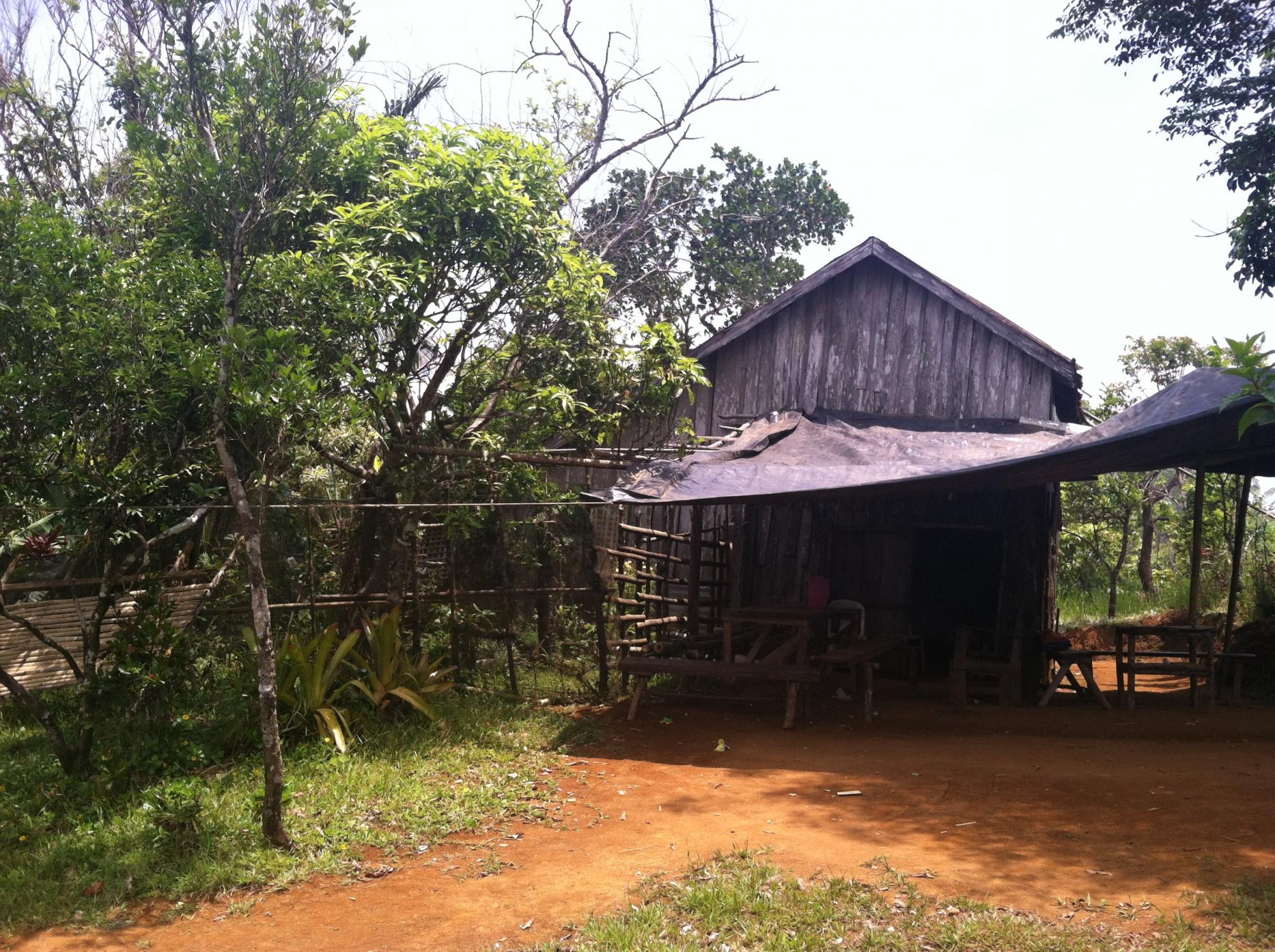 In the town of Lumban in the province of Laguna, Rev. Eladio Mondez leads the congregation of Lacao Mennonite Bible Church. On Sunday mornings, they gather some 50 men and women, both young and old, to hear the Word of God. In the afternoon, some 40–50 children from around the neighbourhood come to learn Bible stories, to sing and dance, and to eat a healthy meal volunteers from the congregation have prepared for each child.
In the town of Lumban in the province of Laguna, Rev. Eladio Mondez leads the congregation of Lacao Mennonite Bible Church. On Sunday mornings, they gather some 50 men and women, both young and old, to hear the Word of God. In the afternoon, some 40–50 children from around the neighbourhood come to learn Bible stories, to sing and dance, and to eat a healthy meal volunteers from the congregation have prepared for each child. 
During the week, Rev. Eladio Mondez performs tasks as the chairperson for Lumban Evangelical Alliance of Pastors (LEAP). LEAP is the ministerial association in the town, uniting 12 evangelical churches to make an impact in their municipality. These pastors are committed to assisting the local government in the national anti-drug campaign by becoming facilitators in rehabilitation classes for drug users and pushers who surrender to the police so they could start changing their lives.
Every year in January, Lacao Mennonite Bible Church celebrates National Bible Month and Mennonite World Conference’s World Fellowship Sunday.
A growing body
Mennonites first came to the Philippines in the 1970s through relief efforts by Mennonite Central Committee. Later, Eastern Mennonite Missions (formerly Eastern Mennonite Board of Missions and Charities [EMBMC]) came to the Philippines and established Mennonite churches.
Most of the local Mennonite church leaders are pastors from a different denomination who converted to a Mennonite practice of faith, which is why in 1991 they were formally established as the Integrated Mennonite Churches, Inc. (IMC).
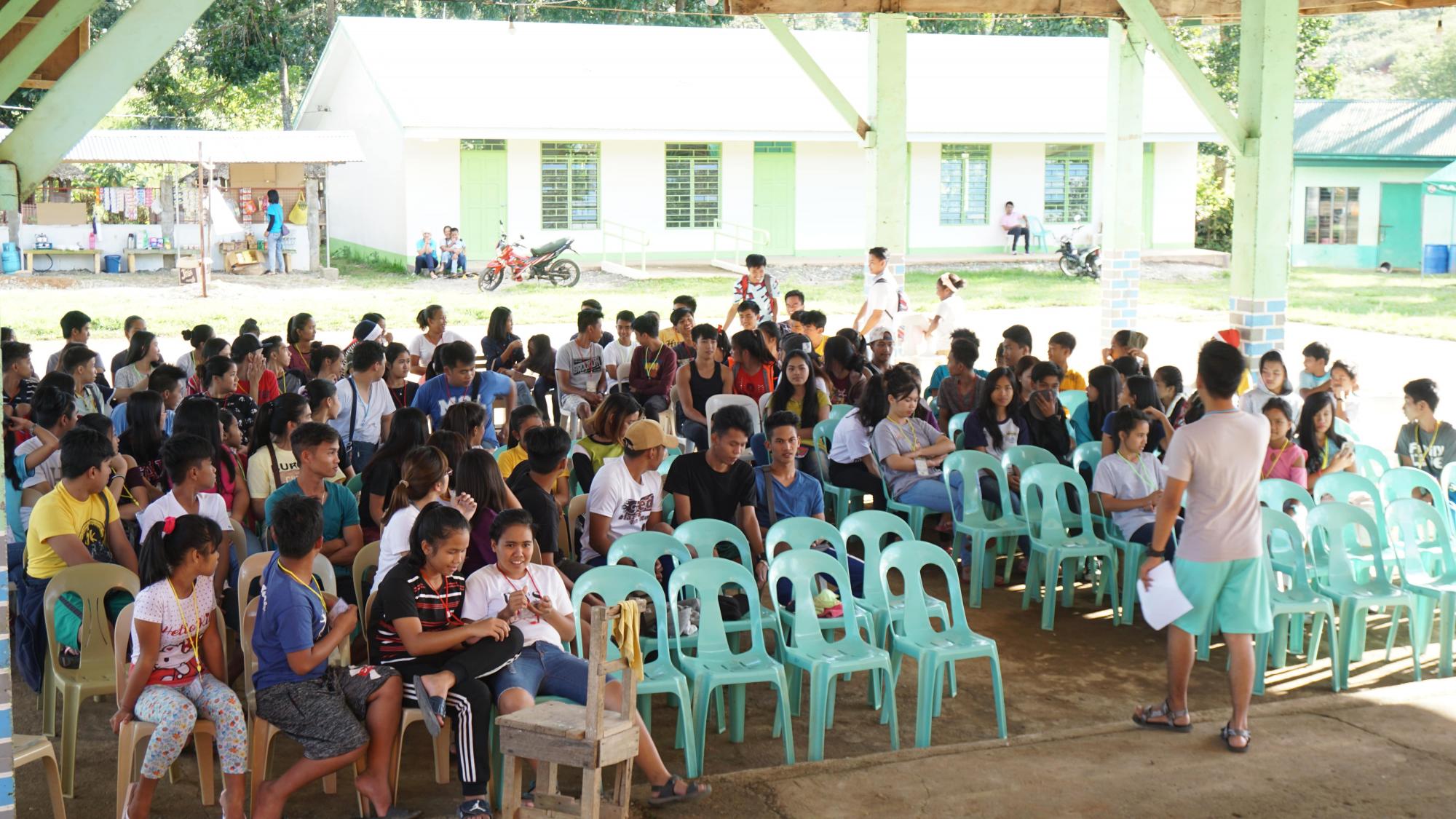
IMC continues to grow, approaching an estimated 1?500 baptized members today. Local churches with IMC consist of congregations that are in the hard-to-reach mountains in the country, where most members are farmers who rely on agricultural crops for a living. Some churches are located in the city, where the next generation serves as young professionals such as teachers, nurses, and development workers.
Christianity is widespread in the Philippines with predominantly Roman Catholic churches. In the last decade, however, there has been an increase in the number of evangelical churches. This may be due to the entrance of foreign missions, and a product of churches splitting. The IMC also experienced a split more than a decade ago.
In the local communities, IMC churches actively engage the needs of their immediate surroundings. Some churches have feeding programs for children who have few resources. They also provide school supplies before the start of the school year in order to encourage the children whose parents cannot afford school supplies. In some other areas, they conduct Bible studies and Sunday school which becomes a venue for children to have fun, listen to stories about Jesus and to be with other believers who love and care for them.
A fellowshipping family
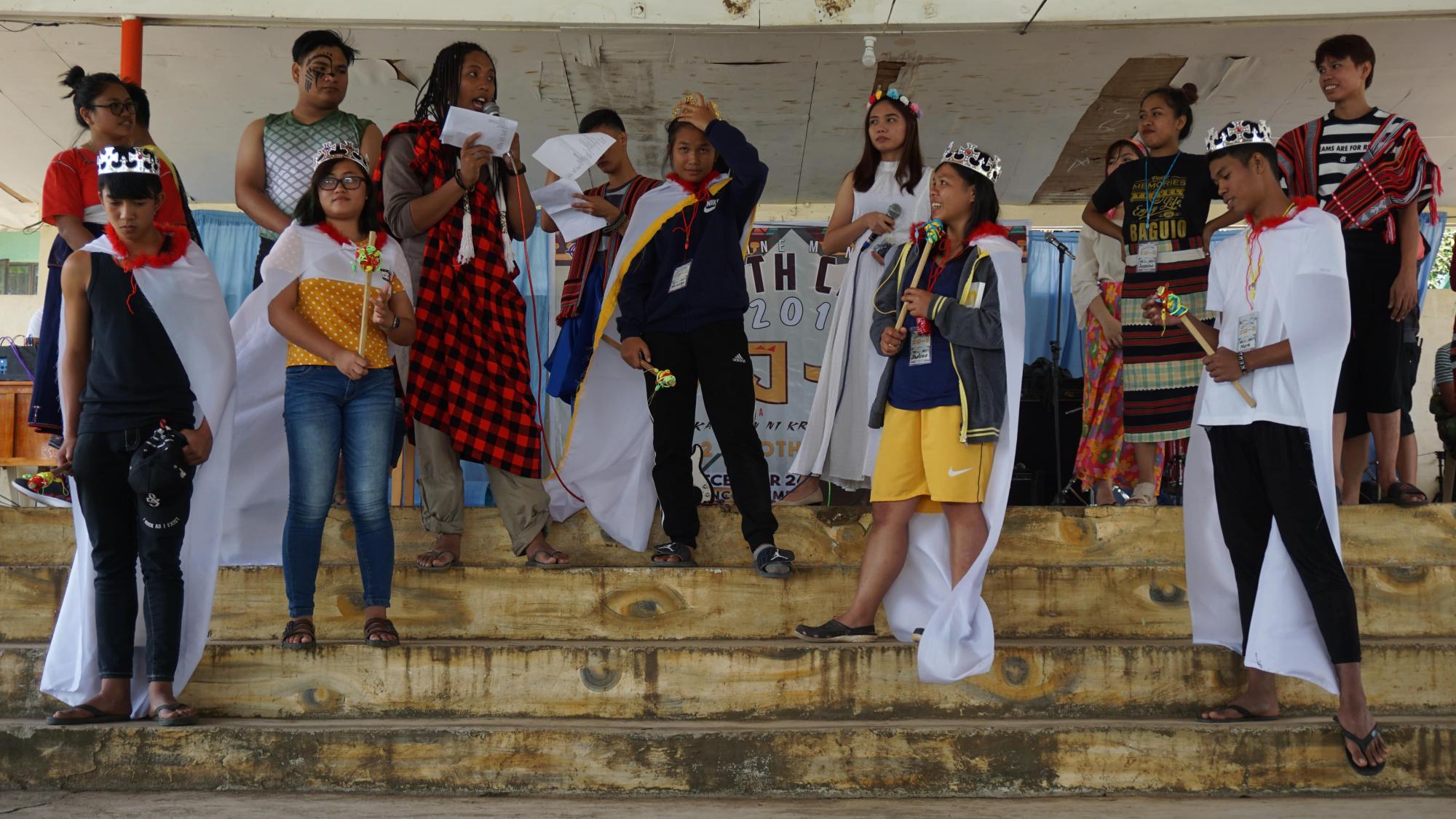
The IMC youth are also gathering every year for a youth camp, where young leaders encourage and strengthen each other. It is also an avenue to invite young people to come to know Jesus and have a relationship with him. Youth camps usually re-energize young people to serve in their local churches and be active in fellowship and witnessing.
IMC congregations are also active in engaging other churches in their areas. They become members of ministerial associations in their municipality or province. These organizations encourage fellowship among the believers of Jesus. Even though there are some differences, they highlight the unity of the believers of Christ. The Mennonite churches offer peace theology that inspires them to organize peaceful covenants among candidates during local election periods.
Other Anabaptist groups in the Philippines
Aside from the IMC, there are other Mennonite denominations present in the Philippines, such as the Conservative groups from the Nationwide Fellowship of Churches, which the IMC has no communication with. There is a Mennonite Brethren mission in the north, but there are no contact with the IMC yet. There is also a church network (Peace Church Network) planted by MC Canada, which was established in Metro Manila, the capital of the country. Peace Church and IMC have met in several occasions for fellowship and learning together.
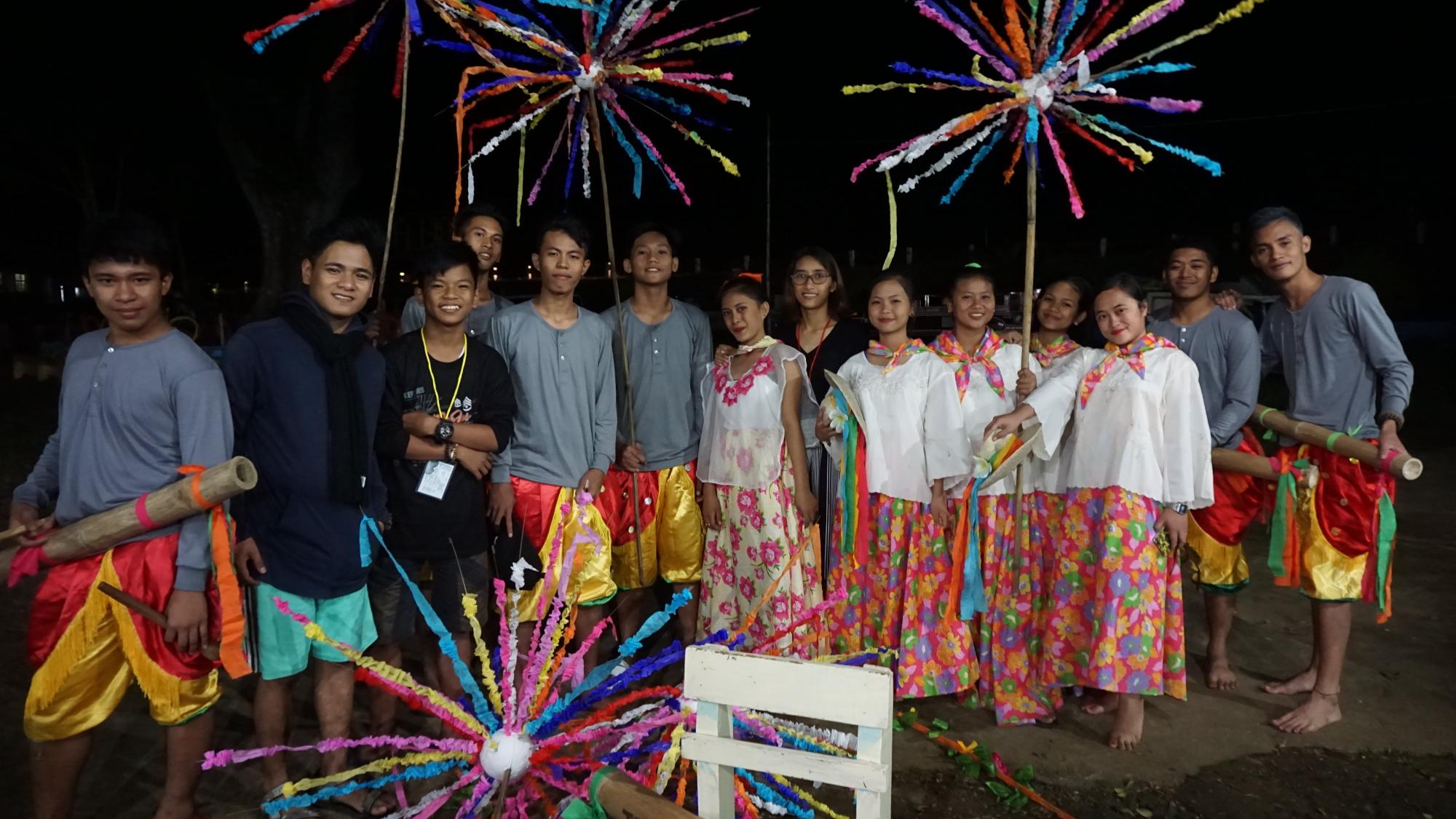
As in other countries, the Mennonites in the Philippines face challenges in discipleship and evangelism. There is an overwhelming amount of evangelical presence in the country and almost every person has heard the gospel, but chooses to ignore it or run away from it. The challenge is how to witness the uniqueness of the Anabaptist tradition in highlighting peace, nonviolence and nonresistance.
There is opportunity to live out our principles of peace and nonviolence in a tangible way. Armed groups desiring a Communist rebellion dwell in remote mountainous regions. Some IMC churches located in areas where rebel groups reside become witnesses to by offering snacks and being friendly with the rebels.
Anabaptism has also had influence over the peace processes in the country, where peace building leaders look up to the Anabaptist peace theology as a model in approaching Muslim separatist groups, as well as Communist rebels.
As the Mennonite presence in the Philippines approaches the 50-year mark, our churches – found in several different denominational expressions – continue to follow Jesus in the way of peace, witnessing to our neighbours with the love and justice Jesus demonstrated in his interactions with people on earth.

—Regina Lyn Mondez-Sumatra is the National Coordinator of the IMC since 2011. She grew up in Lumban Mennonite Bible Church and is currently a full-time research officer for a small peacebuilding NGO in Metro Manila, advocating for the peace process between the PH government and the communist party.
This article first appeared in Courier/Correo/Courrier April 2019.
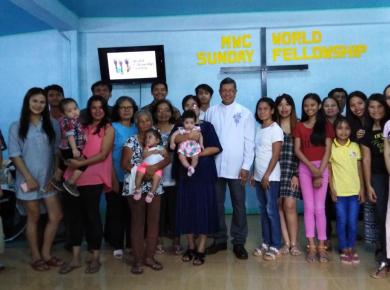
Join the Conversation on Social Media
FacebookTwitterInstagramFlickrYouTube